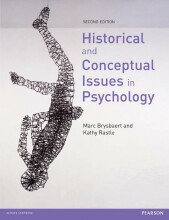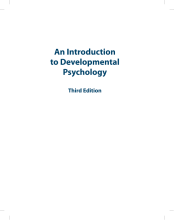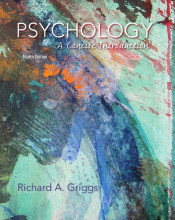The wider picture
31 important questions on The wider picture
Philosophy especially flourished in greece, which different categories of questions did man think about in that time?
- Ontology
- epistemology
- aesthetics
- ethics
Which philosophical category belongs to this question: what makes some things beautiful and others ugly?
Which philosophical category belongs to this question: what is the world like?
- Higher grades + faster learning
- Never study anything twice
- 100% sure, 100% understanding
Which philosophical category belongs to this question: what makes some deeds good and others bad?
Which philosophical category belongs to this question: how do we know what is true, how do we learn about things?
In which way can we divide thinkers in before socrates and after socrates?
How are heraclitus' views still relevant in science today?
- In science it is often assumed that things are identical and interchangeable. This is called the invariance principles
- in physics all electrons are identical by assumption
- also in psychology within an experiment people in the same groups are considered the same.
In the painting of the school of athens how do you know which one is plato and which one is aristotle?
- Aristotle was a student of plato, so plato is the old guy
- but Aristotle was an empiricist and is therefor pointing to the floor, plat was a rationalist and therefor pointing towards the sky.
How do we call an information-conveying sign that consists of a picture resembling the person, animal or object it represents?
How do we call the view that states that knowledge is gained through reason?
What did the work of Hippocrates consist of, and how do we view him today?
- a collection of treatises on medical conditions and treatments, the Corpus Hippocraticum
- Hippocrates is generally considered to be the father of (modern) medicine.
How do we call a school of critical reflection on the universe and human functioning; started in Ancient Greece?
What is a remarkable aspect of plato's texts, what is a downside of this?
- they consist of dialogues of persons discussing philosophical matters. One of the participants was usually Socrates, Plato’s mentor.
- it is never entirely clear whether Plato shared the position articulated by his characters, or used the dialogue to raise the argument for the reader.
What was an important part of plato's world view?
- There are two worlds, the intelligible world and the sensible world.
- The intelligible world consist of eternal, never-changing ideal forms.
- the sensible world consist of the ever- changing material reality in which the forms or ideas are imperfectly realised and which we perceive.
- we can only perceive the sensible world, therefor we can only perceive shadows of the perfect objects of the intelligible world.
Why was plato sure of rationalism?
- We can only perceive imperfect forms in the real world, like a drawn circle.
- yet we can imagine a perfect circle and know it's properties
- if we have never seen one, how do we have this knowledge.
According to Plato, how can man gain knowledge of the intelligible world?
- The soul is what defines a person. It is immortal and made of the leftovers of the cosmos-soul. It only temporarily inhabited the human body.
- Because human souls were part of the cosmos-soul, they had knowledge of the perfect realm. Therefore, humans could get access to the true ideas (e.g. about goodness, beauty, equality, change) by focusing on the innate knowledge brought by the immortal soul.
According to plato, in which three parts was the soul divided, where located, and function?
- Reason, located in the brain. Through this part humans would get knowledge of the realm of ideal forms, the intelligible world.
- sensation and emotions such as anger, fear, pride and courage. This part is in the heart and is mortal
- appetite and the lower passions, such as lust, greed and desire. it was located in the liver.
In what three subparts did aristotle divide knowledge?
- Productive knowledge; knowledge of how to make things and do stuff
- practical knowledge; how people should act in different situation (ethics and such)
- theoretical knowledge; truth about the world.
In which three subparts did aristotle divide theoretical knowledge?
- Mathematics
- natural science; biology, physics etc
- theology; astronomy and logic etc.
According to aristotle, how does theoretical knowledge arise?
the axioms where determined through observations, everything else though logic.
How do we call the view that you have inborn knowledge?
Describe plato's cave.
- The shades thrown on the wall by the fire represent the shadows of the perfect forms we perceive in the real world.
- when one returns from the journey outside the cave it is impossible to describe what you've seen because the people in the cave do not have this knowledge.
What is aristotle's view on objects?
- Everything consists of matter and forms
- Matter only has potentiality, no actuality, the matter is exchangeable.
- The forms are not just something in our heads but are the essence of being
How did aristotle teach?
Describe the tabula rasa theory.
How do we call an argument consisting of three propositions: the major premise, the minor premise, and the conclusion. The goal of logic is to determine which syllogisms lead to valid conclusions and which not?
When is an argument deductive and when inductive?
- Deductive when you go from a general rule to a conclusion about a specific observation
- inductive when you try to make a general rule based on a specific observation
How can we gain knowledge through reasoning according to aristotle?
What is a characteristic of the hellenistic period?
Which visions where there in the hellenistic period?
- Stoicism: it is best to minimize your feelings, we shouldn't live in extremes.
- Epicureanism: happiness is the ultimate pursuit, which you achieve by living your life as balanced possible.
- Skepticism: refrain from judgment
What was the roman's influence in the philosophy?
The question on the page originate from the summary of the following study material:
- A unique study and practice tool
- Never study anything twice again
- Get the grades you hope for
- 100% sure, 100% understanding
































